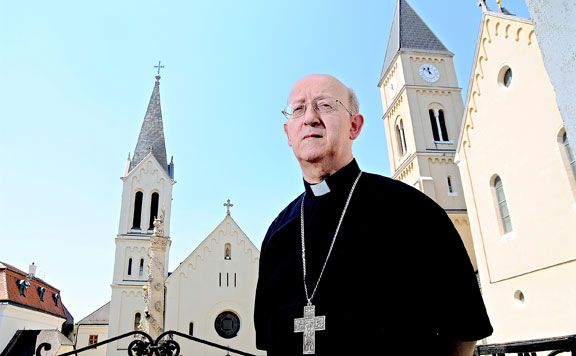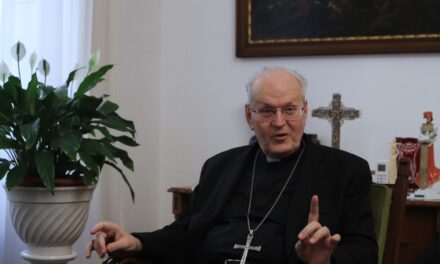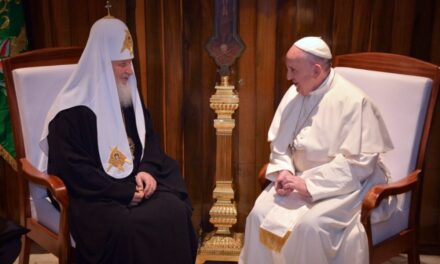Since Islam holds that the Koran contains the literal revelations of Allah, insulting the Koran amounts to blasphemy and is punishable by death in some countries.
The word "early" itself does not mean a book, nor a reading, but reading aloud, reciting aloud. On the other hand, the Bible is primarily writing, a sacred writing, from which we usually read aloud (especially at Masses), but the emphasis is still on silent reading and study.
The first fundamental difference between the Bible and the Qur'an is that the Bible is the joint work of the omniscient God and the omniscient man, while the Qur'an belongs to the almighty Allah alone. Therefore, the Bible can be studied and criticized, but even studying the Koran is dangerous.
The Bible can even be seen as the record of a huge religious lesson that lasted for a thousand years. The religious teacher is led by the Holy Spirit, who guarantees that the final answer will be correct, but during the trial, opinions and comments that are not even related to the ultimate truth may be voiced and entered into the "minutes". Anyone who reads the Bible knows that the killing of the inhabitants of Jericho: men, women, infants and the elderly (cf. Jos 6:21) can no longer be an act that pleases God, because the actions of Joshua and his people are superseded by the words of Jesus: "put it back in its sheath your sword" (Mt 26:52).
It was still possible to write interpretations and ijtihads about the Koran until the end of the first millennium, but the doors to this have been closed for nearly a thousand years. Mahmud Mohamed Taha , a Sudanese theologian, for example - seeing the contrasts between the Meccan and Medinan surahs - suggested that the more tolerant Meccan chapters should be preferred, at least regarding the judgment of Kafirs (non-Muslims). He was therefore sentenced to death and publicly hanged in the main square of Karthum in 1985. NasrHamedAbou-Zeid , a professor from Cairo, suffered an almost similar fate . He was spared execution by the Supreme Court - commuting the death sentence to exile. He also had to divorce his wife, who then managed to escape to the Netherlands.
The other, even more important difference between the Bible and the Koran is that in the Bible the development goes from intolerance (revenge, violence) to tolerance (forgiveness, love), and in the Koran it is the other way around. The earlier Meccan surahs are the more tolerant (at least towards the kafirs), and the Medinan ones are the more intolerant. In the earlier chapters, the word Islam still means surrender , and in the later chapters, conquest . The situation is similar with jihad. In the beginning, it means the effort with which a Muslim professes his faith, prays, gives alms, fasts, and makes pilgrimages, and later Jihad means more violence , with which he forces others to submit.
By the way, the Koran, written in the Mesopotamian Arabic language of the time of Muhammad, consists of 114 suras (chapters), in which there are 6,236 verses (verses), 72,639 words and 323,622 letters. - 86 of the surahs were composed in Mecca and 28 in Medina. - In terms of its length, the Koran is shorter than the New Testament Scriptures. - Since the entire Koran - as already mentioned - was written for chanting and recitation, several different reading unit schedules were prepared. In one of the Korans I used, there are two divisions: one divides the entire text into 30 units, the other into 60 units.
The beautiful texts praising Allah and containing instructions, exhortations and admonitions for the believing Muslim can be understood by everyone. But our kind of European kafir reader still finds reading tiring and often does not understand Allah's message. The main reasons for this are:
- The Koran was not written in a European language, and it does not contain the vocabulary of the Bible that connects European languages, regardless of whether it is Latin, Slavic, Germanic or even Hungarian. This is also why there are many Arabic words for which the translator finds that there is no Hungarian or even English or French equivalent.
- As already mentioned, the Koran was not written simply for reading and studying, but for reciting and chanting aloud. We can also say that it is a collection of sermons. It is especially true of the Meccan surahs that they are full of poetic imagery, similes, exhortations, and threats. It is always difficult to translate poems one by one. Just think of János Arany's sentence: "I made this meadow of the sea a needle for you...": let this be translated with servile fidelity... By the way, it was not easy to translate the Bible in Hebrew or the speeches of Jesus in Aramaic into Greek or other languages.
- The book of psalms also contains lyrics written to the tune of folk songs known to Jews. Jesus' poetic exaggerations in the genre of hyperbole also taught the evangelists a lesson. "He who does not hate his father, mother, wife, children... cannot be my disciple" (Lk 14:26): such statements also shock us, even though Jesus' listeners knew that this should not be taken literally. That is why Matthew returns it like this: "He who loves father or mother more than me is not worthy of me..." (Mt 10:37).
- A big problem is that the Christian reader is generally not familiar with the so-called sunnahs , the life and sayings of Muhammad, the stories related to him. Thus, he does not even know the "Sitzim Leben", from which one can understand each text. /1./
- Finally, the biggest problem is that the Koran we hold in our hands completely lacks temporality, chronology. The texts preached by Muhammad, recorded on parchment, palm leaves, bones, and stone slabs, were only collected during the time of Abu Bakr After that, it was created in several different ages (Mecca, Basra, Kufa, Homs). were collected by the third caliph, Osman The editing was done in a rather strange way: starting from the 2nd sura, the chapters were put together (roughly) according to length: the longer ones at the beginning, the shorter ones at the end. So, for example, the first revelation can be found in sura 96... Let's imagine that the Gospel of Matthew was edited according to this order: Jesus had already eaten the last supper a long time ago, and was even arrested, but he had not yet given the Sermon on the Mount; then he gives the Sermon on the Mount, but only after that is he born... (How "profound" the gospel would become...)
It is also important to say that according to the majority of Muslim scholars, the Koran is eternal . This eternal Koran, or at least parts of it (the Torah, Psalms, Gospels) was sent down by Allah to the Jews and Christians, but they falsified these writings. This is the reason for the difference between the biblical and the Koranic versions of the individual stories. Mohammed and the Archangel Gabriel, who interpreted the messages, had precisely the mission of conveying the authentic Koran to humanity...
in the sunnahs already mentioned in the introduction : in the biographies and hadiths (sayings and stories about Muhammad) that Islam written by accepted authors. The length of the Sunnah is about 7 times that of the Qur'an. - Sharia law itself is largely based on the Sunnah. - The 5 pillars of Muslim religious practice can be found in their entirety and unity only in the Sunnah (for example, Al-Bukhari's Sahih).













